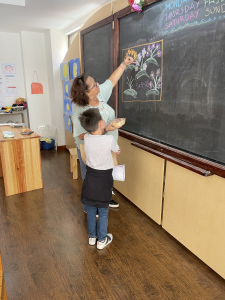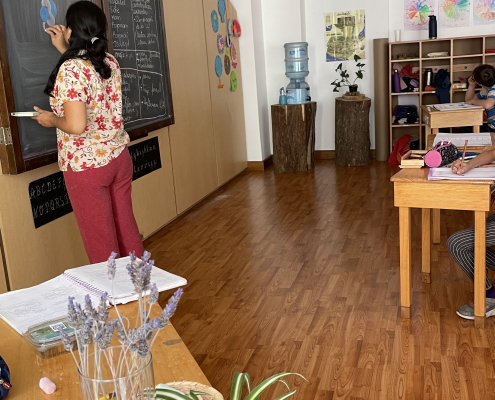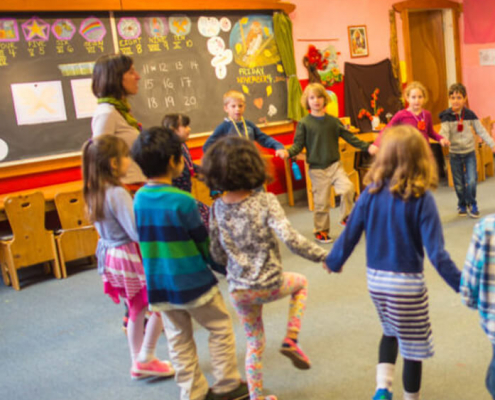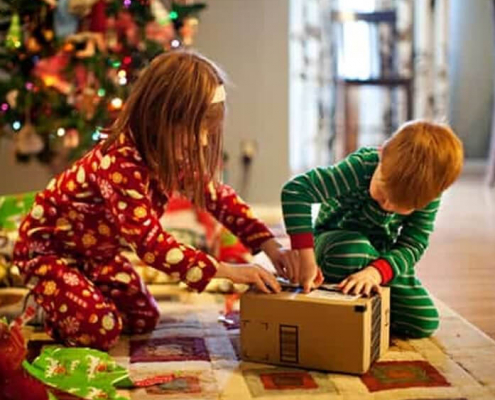Moving to Class One will be a significant step in the life not only of your child but also for you, the parents. Your child might feel the excitement of taking this step into independence and freedom that might take all their courage.
It will be the zero-mile-marker, the mile marker where our journey begins. It is going to be a journey through the lands of numbers and letters, accompanied by fairy tales, poems and many songs.
The year starts with Form Drawing, the most important subject this year, for it provides a good foundation for the letter recognition that is central to reading. The drawings themselves could not be any simpler: all year we will work with only two elements of drawing – straight and curved lines. Form
Drawing awakens several capacities in your child:
- Concentration – The forms we draw cannot be done well unless each child is focused and quiet.
- Eye/hand coordination – the “model” on the chalkboard must be copied onto your child’s book.
- Understanding forms – that relate to numbers and letters.
- Neatness and balance – A form drawing can’t be beautiful unless it is placed in just the right way on the paper.
In Arithmetic we will approach the land of numbers by focusing first on the qualities of the numbers. Your child will hear stories in which the numbers stand out prominently – stories likeThe Three brothers, The Six Swans, The Seven Ravens, etc.
The Class One children love to count, so we will count rhythmically up to hundred, forwards and backwards. Through rhythmical counting your child will be aware that there are two different kinds of numbers – odd and even. From there it’s a small step to the times tables, speaking one number loudly and the next quietly. The understanding of the concept of the four operations (addition, subtraction, multiplication, and division) will be supported by stories, of course.
Our approach to reading and writing is indeed slow. Our approach is also thorough, rich, artistic, and joyful for first graders. From the story they will hear, to the picture, to the ideogram stage, to the final letter. Your child will establish a far deeper relationship with literacy than one who merely learns to identify the finished product.
To support your child’s reading abilities through spoken language your child will do lots of recitations. By reciting and slowly memorizing many examples of beautiful and meaningful poetry (and songs as well) children develop the ability to distinguish the basic sound combinations that make up a language. This way children will become better spellers.
